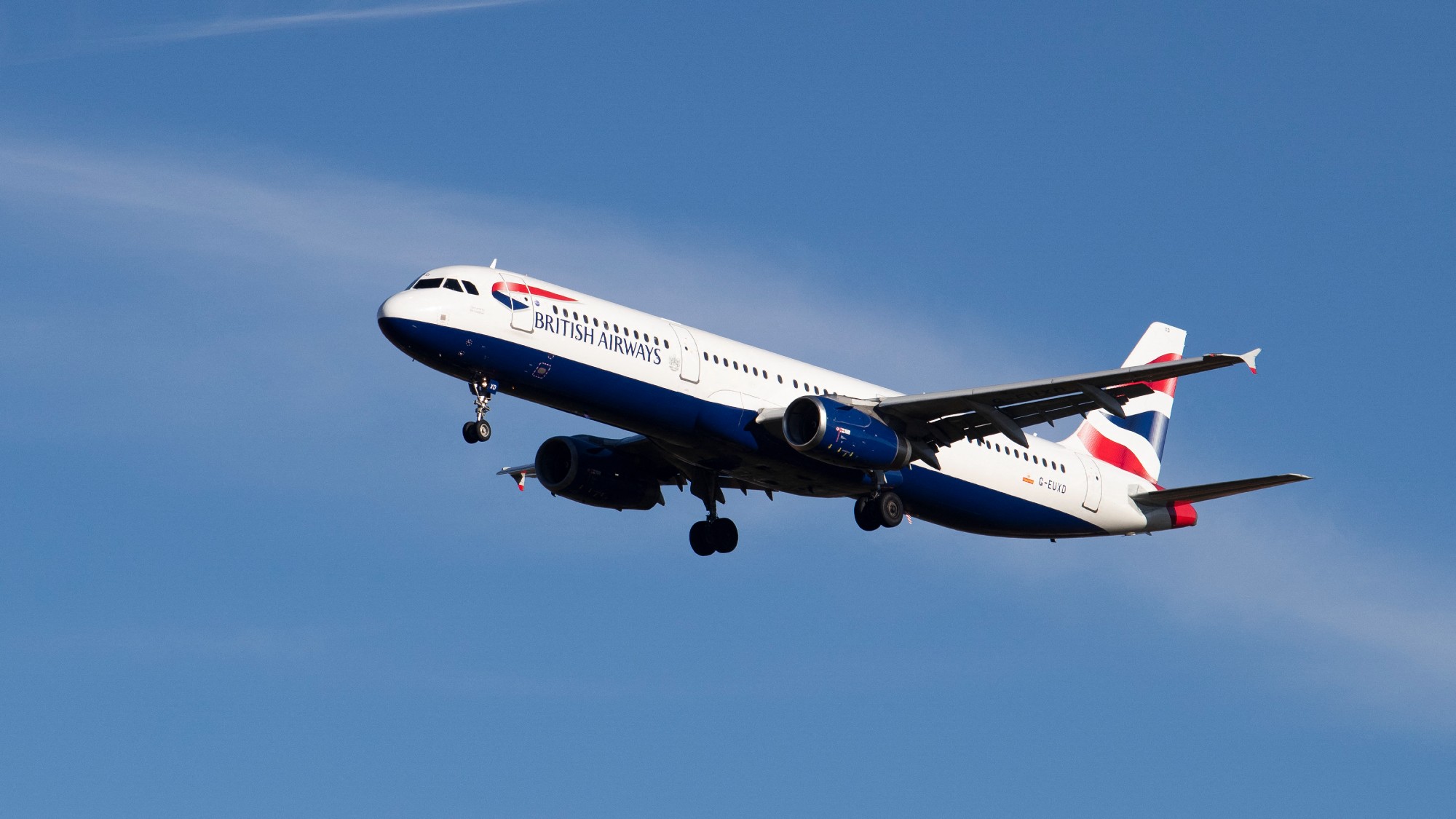How the failed Halliburton-Baker Hughes deal reveals the problem with mergers
In capitalism, sometimes mergers are just cheats


A $28 billion mega-merger between oil field services giants Baker Hughes and Halliburton went down in flames this weekend. How it happened raises some big questions not just about the two companies but about the very wisdom of mergers themselves.
Halliburton and Baker Hughes are the second and third-biggest companies in the world when it comes to supplying technology and assistance to oil drilling projects. But the field's leader is Schlumberger, and one key goal of the combination was to better rival that company's market share.
This is where the problems begin to come in. Baker Hughes in particular had bits of technology Halliburton hadn't been able to equal in its fight against Schlumberger. Combining was one obvious way to solve the problem. But that also meant there would be fewer companies in the field attempting to provide those technologies to customers. And U.S. government regulators pointed to between 23 and 30 lines of products and services where the number of competitors would drop from three to two, quite possibly leading to less choice and higher prices.
The Week
Escape your echo chamber. Get the facts behind the news, plus analysis from multiple perspectives.

Sign up for The Week's Free Newsletters
From our morning news briefing to a weekly Good News Newsletter, get the best of The Week delivered directly to your inbox.
From our morning news briefing to a weekly Good News Newsletter, get the best of The Week delivered directly to your inbox.
They brought the hammer down in early April, when the Justice Department filed an antitrust suit to block the merger. "I have seen a lot of problematic mergers in my time. But I have never seen one that poses so many antitrust problems in so many markets," Bill Baer, the head of the Justice Department's Antitrust Division, said in a conference call at the time.
Halliburton and Baker Hughes both being international heavyweights, authorities in Brazil and Australia voiced issues with the proposed deal as well. The European Union even opened an official antitrust investigation into the merger back in January.
The companies tried to deal with regulators' objections by selling off various business lines to other players. But the recent collapse in oil prices meant everyone was hunkering down, so Halliburton and Baker Hughes couldn't find enough willing buyers. Under all that combined pressure, they called off the deal on Sunday.
Here's what's curious about this tale. Ostensibly, the ultimate point of free market competition is to benefit everyone. Capitalism is not supposed to be a pleasant experience for the companies operating in it. Under constant pressure to maintain market share, keep customers, and turn a profit, they must ceaselessly innovate new technologies and business models, which then percolate through all of society and make us all better off. Profits are just the second-order effect of all this: They're the result of a company doing better by society as a whole, and thus the incentive that drives companies to keep improving things for everyone.
A free daily email with the biggest news stories of the day – and the best features from TheWeek.com
That's the theory anyway.
But Halliburton and Baker Hughes' deal is an example of how this theory can fall apart in practice. The other guy builds a better mousetrap, but instead of reacting to that development by attempting to build an even better mousetrap, you just buy out the other guy. It works great for your bottom line. But in terms of how capitalism is supposed to operate, it's kind of a cheat — a way to get around the hard work of actually competing.
So while profits are supposed to be the crucial link between the capitalist's self-interest and the common good, they're not always so beneficent. Left to its own devices, that link can break down, and capitalists can make a profit while hurting the common good.
In the instance of mergers and mega-deals, there are few ways this can happen.
One obvious example in which fewer and bigger companies can profit even while making everyone else worse off is natural monopolies: a market where, for whatever reason, it's just intrinsically difficult for competitors to enter. So whoever's already there can charge customers an arm and a leg without adding any value. Another example is when regulatory barriers keep competition out of a market — so established players aren't leveraging new innovations to their advantage when they raise prices, they're just leveraging new government rules.
A third example, less talked about, is when the economy is just in a chronic slump of weak aggregate demand. Lots of people are perpetually out of work, so employees have no bargaining power to demand raises or better compensation. There's always somebody more desperate ready to take whatever deal they won't take. On top of that, the weak economy offers fewer real opportunities for profitable investment. Put it all together, and companies have both fewer labor costs and fewer investment costs, so they just spit out all the excess revenue to shareholders.
There are lots of random events that drive waves of mergers — sudden new technologies or upheavals in industry, or super-low interest rates that make it cheaper to do the borrowing necessary for corporate buyouts.
But I think the evidence that a chronic lack of demand is responsible for our latest wave of mergers and acquisitions is pretty overwhelming. Think of it this way: High demand in the economy drives competition, because opportunities to provide for customers' needs proliferate so fast companies can't keep up if they don't innovate and pay their workers better to retain them. But when demand is low, companies can extract more in profits by combining forces.
One justification you often here for mergers is to cut down on operating costs. Which is of course true. One company is, by definition, less bureaucracy than two companies. But that's also just another way of the companies saying: We don't feel any demand from the economy right now to bother building our own better mousetrap, so we might as well combine offices and give the shareholders the savings.
None of which is to say a merger or acquisition is never a good idea. Just that, when the people who stand to profit say "both companies expected the proposed merger to result in compelling benefits to shareholders, customers, and other stakeholders," as Halliburton Chairman and CEO Dave Lesar said, there's reason to be skeptical.
And reason to be glad that the U.S. government, which has long demurred from vigorously enforcing antitrust law, might finally be getting its mojo back.
Jeff Spross was the economics and business correspondent at TheWeek.com. He was previously a reporter at ThinkProgress.
-
 Ashes to ashes, ducks to ducks: the end of Bazball?
Ashes to ashes, ducks to ducks: the end of Bazball?Talking Point Swashbuckling philosophy of England men’s cricket team ‘that once carried all along with it has become divisive and polarising’
-
 The strangely resilient phenomenon of stowaways on planes
The strangely resilient phenomenon of stowaways on planesIn The Spotlight Lapses in security are still allowing passengers to board flights without tickets or passports
-
 Four Seasons Seoul: a fascinating blend of old and new in South Korea
Four Seasons Seoul: a fascinating blend of old and new in South KoreaThe Week Recommends Located right in the heart of the action, this classy hotel is the perfect base to explore the capital
-
 The pros and cons of noncompete agreements
The pros and cons of noncompete agreementsThe Explainer The FTC wants to ban companies from binding their employees with noncompete agreements. Who would this benefit, and who would it hurt?
-
 What experts are saying about the economy's surprise contraction
What experts are saying about the economy's surprise contractionThe Explainer The sharpest opinions on the debate from around the web
-
 The death of cities was greatly exaggerated
The death of cities was greatly exaggeratedThe Explainer Why the pandemic predictions about urban flight were wrong
-
 The housing crisis is here
The housing crisis is hereThe Explainer As the pandemic takes its toll, renters face eviction even as buyers are bidding higher
-
 How to be an ally to marginalized coworkers
How to be an ally to marginalized coworkersThe Explainer Show up for your colleagues by showing that you see them and their struggles
-
 What the stock market knows
What the stock market knowsThe Explainer Publicly traded companies are going to wallop small businesses
-
 Can the government save small businesses?
Can the government save small businesses?The Explainer Many are fighting for a fair share of the coronavirus rescue package
-
 How the oil crash could turn into a much bigger economic shock
How the oil crash could turn into a much bigger economic shockThe Explainer This could be a huge problem for the entire economy
